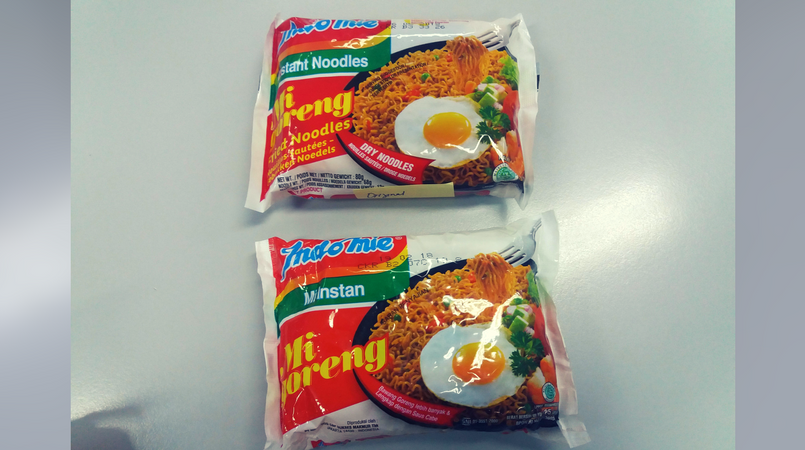
The Independent Consumer and Competition Commission is calling on all businesses, particularly retail shops and supermarkets, to stop selling counterfeit products, non-English labelled products and products that have expired.
This comes after the ICCC found an increase in the particular items during an official visit to selected provinces.
One popular product consumed by many Papua New Guineans, the Mi goreng Indomie noodles, has been found to have a counterfeit.
“They look the same, you see the colour exactly the same, except the counterfeit one is written in another language, not English,” says ICCC Commissioner and Chief Executive Officer, Paulus Ain.
“When we went to the shops I asked, can you eat this? If you can’t, why putting it on the shelves? Are Papua New Guineans dogs?
“Many innocent consumers have already consumed the product; this shows we need to step up in our area of work.”
Further to this, ICCC general manager, Avi Hubert, said the requirement of the non-English labelling is very specific. There are 5 key elements:
- Ingredients need to be in English so that consumers can make an informed decision on whether to consume the product or not.
- Name of the distributer needs to be in English
- Name of importer needs to be in English
- The address or country of origin needs to be in English
- The net weight of the products need to be in English
Commissioner Ain confirmed that the ICCC has had discussions with a number of retailers and supermarkets after identifying the non-English labelled counterfeit items.
He said for now they are just giving soft warnings to business houses however, the penalty for non-English labelling is K100,000.
He is calling on the public to be aware of the products they consume and to report anomalies to the ICCC so that the problem can be addressed proactively.
In terms of the functions of the ICCC, Ain commented that there is a misconception that the ICCC can do almost anything. He clarified that under the ICCC Act 2002, there is no specific provision that prohibits counterfeit products.
“ICCC does not have the powers to remove products from shops just because they are counterfeit products.”
Ain further explained that in order for ICCC or any relevant agency to remove or seize counterfeit products, it must first have the legal basis to act; otherwise it can be sued.
However, Ain clarified the ICCC can deal with counterfeit items on a case by case basis, particularly from a consumer safety and protection perspective.
Meantime, the ICCC Commissioner will also write to the PNG Custom Commissioner, Ray Paul, to explain its position and explore collaborate opportunities under both agencies’ existing memorandum of understanding.
(The Mi goreng Indomie noodles has a counterfeit)
